
How French volunteers aim to assist 60,000 Ukrainians returning home
In Lviv and Dnipro, a project is starting to help Ukrainians who had to leave due to the war but wish to return, find housing and jobs in Ukraine. This effort is led by the French non-profit organization "Ukraine is Europe."
The NGO "Ukraine is Europe" is a European humanitarian group that supports Ukrainians affected by the war and those who had to leave their homes. They operate both within the EU and Ukraine, providing essential aid directly to areas affected by conflict.
Their primary mission currently is to establish reintegration centers. These centers are meant to welcome and assist Ukrainians who have decided to return home after being displaced by Russia's full-scale war against Ukraine. To support this initiative, "Ukraine is Europe" is establishing two reception and integration centers in Lviv and Dnipro, with plans for similar projects in other safe regions of Ukraine.
Espreso recently interviewed Artur Franchuk, the head of "Ukraine is Europe," to discuss their ambitious plan of helping 60,000 Ukrainians return to Ukraine and reintegrate into society.
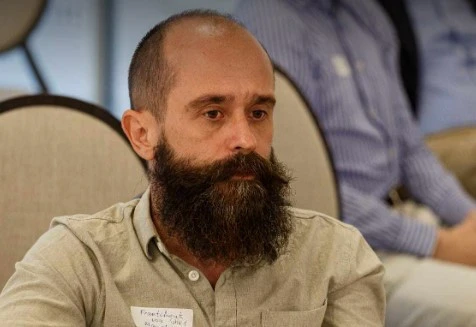
Photo: provided by Artur Franchuk
Artur has a fascinating life story: his mother is Ukrainian, and his father is French. While he was born in Dnipro, his family moved to France when he was young. As an adult, Artur Franchuk found success in business. He lived in Hong Kong for six years and later spent seven years in New York, where he managed an international consulting company. However, the outbreak of the full-scale war altered his plans. On February 24, Artur was in Kyiv for a scheduled business meeting. With each passing day, he felt a growing responsibility to assist Ukrainians affected by the war provoked by Russia.
Artur, could you share how your volunteering journey began? Was it a straightforward decision to leave your business behind and assist the people of Ukraine?
On the day when Russia launched its full-scale invasion, I had a planned meeting in Kyiv. I had flown in from the USA for work-related discussions. As the situation escalated and uncertainties grew, we decided to temporarily put our office matters on hold for a week or two. With no immediate work to attend to, I joined local volunteers to assist in any way I could. Initially, we delivered mattresses to a friend's office, and it coincided with the arrival of the first displaced people from Kharkiv. Every passing day made it clearer that the war was unlikely to end soon. That's when I made the decision to get actively involved.
For the first three or four weeks, I remained in Ukraine. Friends from France reached out to me, reporting that 300-400 Ukrainian immigrants were arriving daily, and while resources were available to help, there was a need for organization. That's when I made up my mind to step in. I traveled to France and began coordinating support for immigrants. I continued this work until August 2022 because there were significantly fewer people arriving after that time. However, many still sought advice on returning to Ukraine and contributing to the relief efforts. As a result, we made the decision to relocate to Ukraine and focus our efforts here.
In all honesty, the decision to volunteer wasn't an easy one to make initially. Nevertheless, I had both the physical capabilities and the financial means to do so. I realized that if I didn't act at that moment, I might never get the chance. Being in Ukraine from the early days of the conflict and witnessing the situation firsthand, I couldn't simply stand by. I recognize that not everyone can drop everything and volunteer without compensation. At the time, I had the unique opportunity to dedicate myself entirely to volunteering. Given my extensive business network, I had numerous contacts that could be leveraged for assistance. I also understood that not many individuals with such opportunities were willing to step up, which was unfortunate.
Almost every month, Ukraine in Europe provides millions of euros in help to Ukrainians
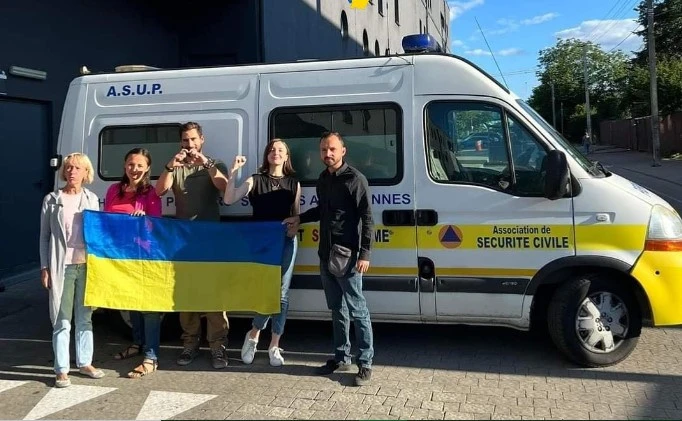
Photo: NGO Ukraine is Europe
Could you please tell us how the NGO "Ukraine in Europe" started and what kinds of things the organization did and is still doing?
We didn't create a charity group right away, because it didn't make sense from a technical standpoint. When we decided to fully move our operations to Ukraine, we set up a formal structure and got all the necessary approvals. Initially, we all worked as individual volunteers without a formal organization. "Ukraine in Europe" is officially registered in France, in Strasbourg, so we can be close to the European Parliament and other European decision-making bodies. This happened last summer.
As I mentioned before, up until August 2022, our primary focus was evacuating people and helping Ukrainians settle in France. We assisted them in finding housing, jobs, completing paperwork, and addressing legal issues, especially those related to children, as finding daycare in France can be challenging. We also dealt with many emotional issues, and the Red Cross played a significant role in resolving them. They mediated between French and Ukrainian families when misunderstandings and conflicts arose.
In total, up until August 2022, we helped approximately 12,000 Ukrainians establish themselves in France. However, starting in August, we began hearing more frequently that most Ukrainians wanted to return to Ukraine.
In Ukraine, we expanded our efforts into various areas. Besides aiding displaced individuals, we transport humanitarian supplies every week, which fill two trucks with essential items. We assist hospitals by providing medical equipment and medicines. We have mobile clinics in Donbas and the Kharkiv region, with a total of five such clinics. We visit areas that were previously occupied, where our volunteers and French doctors offer basic medical care and distribute medicines. When people are seriously ill, we evacuate them to hospitals. We helped many disabled individuals leave Nikopol. There's also extensive support for generators and similar items, as much of this aid was directed to communities on the frontlines. In general, nearly every month, we provide various forms of assistance valued at millions of euros.
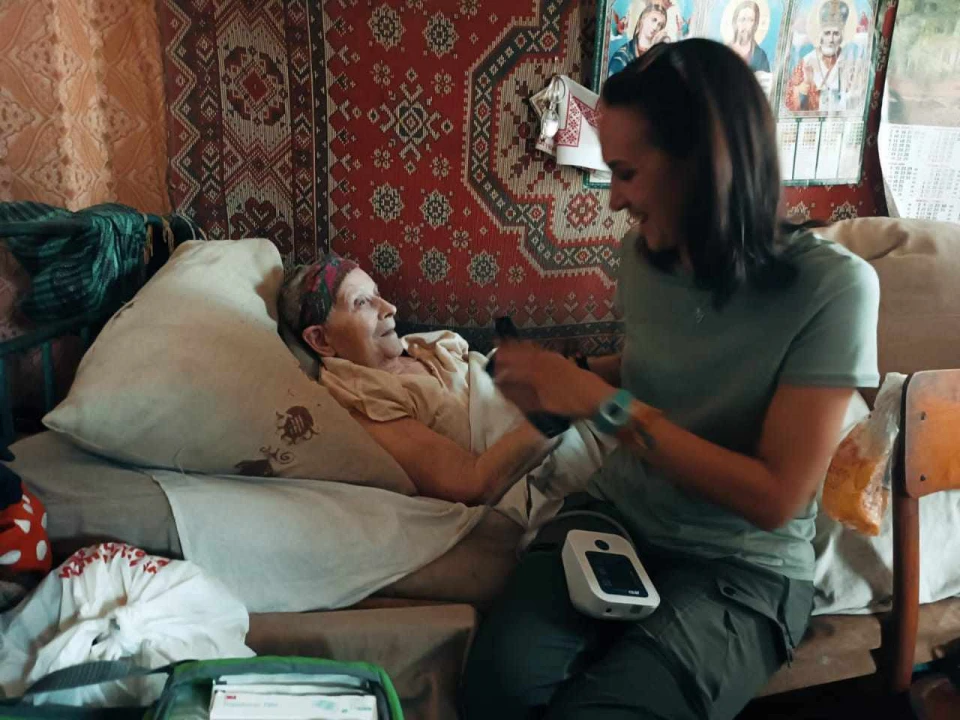
Photo: NGO Ukraine is Europe
How many people are part of your organization?
I am the only permanent member in Ukraine (except for when I need to handle visa matters). However, our French volunteers regularly come here, and they rotate every 2-3 weeks. In total, our organization has over 400 volunteers. Unfortunately, the number of foreign volunteers in Ukraine has been declining each month.
Ukrainians who left want to return
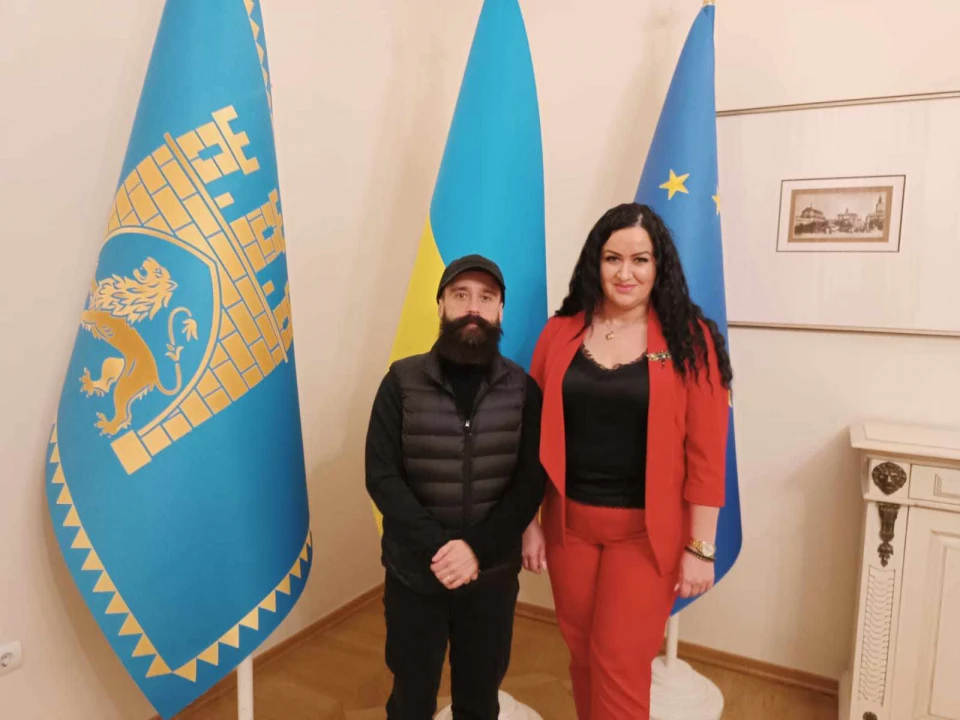
Photo: provided by Artur Franchuk
Why did you decide to undertake the reintegration project?
Since February 24 of the previous year, hundreds of thousands of Ukrainians have relocated to France. Through our surveys conducted last year, it became clear that a majority of them wish to return home. I believe this desire has only grown since then. Why? Firstly, those who held good jobs in Ukraine cannot readily secure similar positions in France. They must first dedicate two years to learning the language, followed by another two years to revalidate their diplomas, and then embark on a job search. Secondly, financial aid to Ukrainian immigrants in France has been reduced by half. It's important to note that Ukrainians in France are not considered refugees; instead, they have temporary protection status. Consequently, in France and other countries, the message is clear: either obtain refugee status, and we will support your language acquisition, job search, and integration into society, or find your own way or consider returning to Ukraine. It's only natural that, after nearly two years, Ukrainians are encouraged to make a definitive choice about their future rather than remaining in a state of uncertainty.
Last autumn, we were prepared to initiate our reintegration efforts in Ukraine for those returning from Europe. We had outlined a detailed plan, but there was a desire to elevate it to a systemic level. However, the project faced a temporary delay when we received a request from the Cabinet of Ministers. At that time, Ukraine was experiencing widespread rocket attacks targeting civilian infrastructure, causing electricity shortages. We were informed that Ukraine might struggle to accommodate a large influx of returning Ukrainians under these challenging circumstances. Consequently, the project was effectively put on hold for approximately six months. However, it resumed in the summer of this year.
They are currently looking for volunteers to run two centers in Lviv and Dnipro
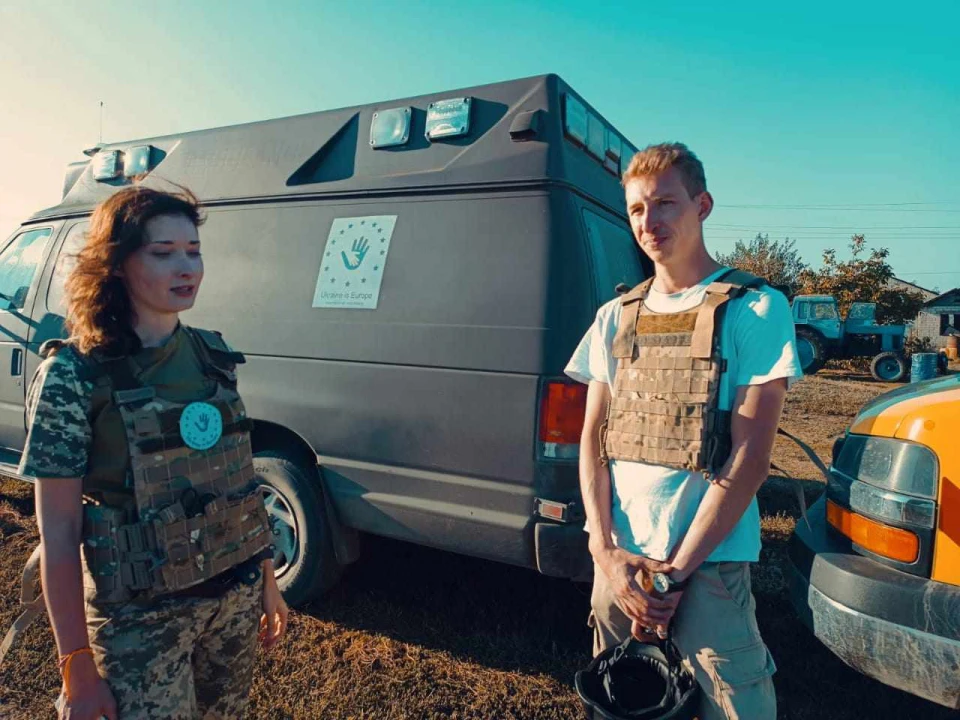
Photo: NGO Ukraine is Europe
Can you tell me more about this project?
We've decided to bring the experience we gained in France to Ukraine. We know what needs to be done and how to cooperate with government agencies to help people find housing and work. Last year, we operated a call center in Europe, receiving 300-350 calls daily from Ukrainians who wanted to return home but didn't know how. These were people who had lost their homes, cars, and jobs and needed to start anew in different regions. They lacked information on what steps to take, which surprised us and motivated us to take action.
When we came to Lviv, we met with representatives of the reintegration center for internally displaced persons. They noticed that there was a lack of coordination between regions. Returning Ukrainians were struggling to understand how to live in the first month and where to find work. The challenges we encountered in France with Ukrainian immigrants mirrored those in Ukraine. People wanted to settle in popular cities like Lviv or Kyiv but often overlooked the opportunities for work and housing in other safe regions, of which there are currently eight in Ukraine. We realized that we could help by centralizing information to assist newcomers in finding their place.
Initially, we are establishing two centers, one in Dnipro and one in Lviv. These centers will offer information and consultations on social housing, employment, and psychological support during the first stage. We aim to provide a comprehensive package of assistance to help Ukrainians get back on their feet. The second stage involves restoring and providing social housing for a certain period to help individuals stabilize in their new environment, typically around 1.5 months.
While we are willing to assist anyone, our primary focus is on Ukrainians who have been living abroad. People who have spent a year and a half in places like France or Germany can feel disconnected from what's happening here. However, we won't persuade anyone to return; we'll only assist those who have made the decision themselves, ensuring they do it correctly. We want to prevent situations where someone returns only to leave after two months, as this has happened before. Ukraine needs professionals who are committed to living and working here.
Currently, we are seeking volunteers from Ukraine to gather the necessary information for the call center to function effectively. Simultaneously, we are renovating a large center in Dnipro, thanks to support from the "Leroy Merlin" foundation. We hope to open the Dnipro center in the next 1-1.5 months. The Lviv center is already operational, and we are in the process of recruiting staff to ensure its full functionality.
You plan to assist 60,000 Ukrainians in returning home. Where does this number come from, and are there similar projects in Ukraine?
Currently, we haven't come across any organizations dedicated to reintegrating Ukrainians in Ukraine, but if such organizations exist, we would be open to partnering with them and sharing our experiences. Our goal is to help 60,000 Ukrainians return to their homeland. This number is based on the fact that around 7 million Ukrainians have left their country, so the 60,000 we aim to support are just a small part of that. Our offices in Lviv and Dnipro serve as pilot projects to show how this can be done. Once we can secure the support of the European Parliament, we plan to expand our network by establishing five larger centers capable of assisting 1,500 people per month. We've heard that the Czech Republic and the Netherlands are willing to provide financial aid to Ukrainians to encourage their return. However, we believe it's more effective to focus on helping them integrate into society rather than simply providing money for travel. Our aim is to demonstrate the right approach.
Ukrainians who decide to return will get help finding a place to live and a job within 1.5 months
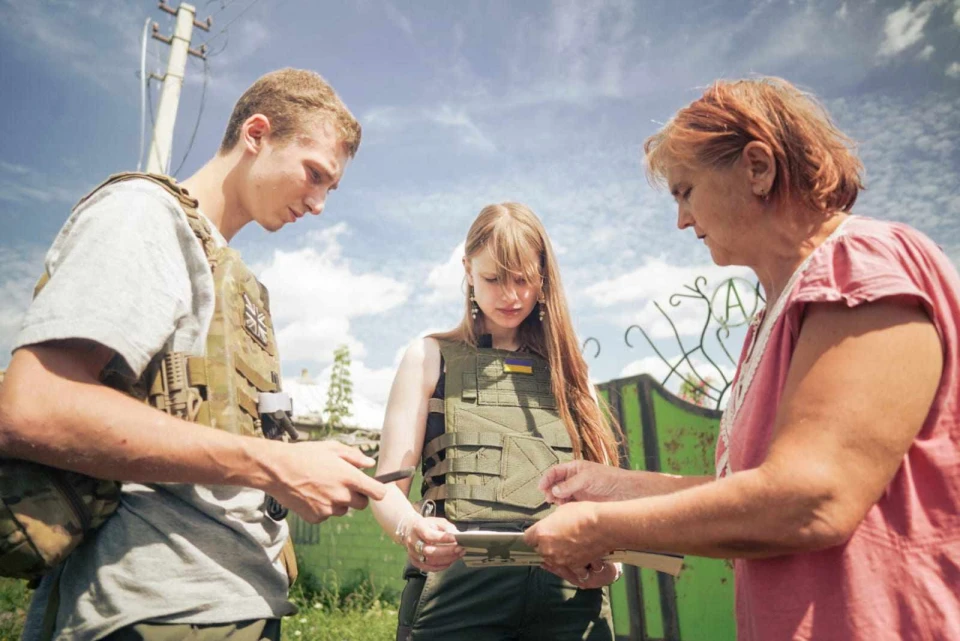
Photo: NGO Ukraine is Europe
What will the reintegration process look like when the project is fully operational?
We understand that we can't help everyone, so we're setting up an application process. It's similar to applying for university. People will tell us why they left and what they plan to do when they come back. We'll review the applications and choose the people we can assist. The person can either come back on their own or we can help with the logistics. Then, we'll sign an agreement that says they must look for a job, work with our team, and find a place to live in safe areas. Importantly, they should be open to different options in various safe regions. For instance, if we help them find work and housing in Uzhhorod, and it works for them, they can go there instead of waiting for us to find something in Lviv. So, there will be certain responsibilities. In the first 1.5 months, we'll provide options, they'll choose, and we'll assist them in becoming a part of their new community. After that, we'll meet every 2 months to see how things are going, address any problems, and figure out how we can help.
We're also working on offering training courses. People from eastern Ukraine might have skills that don't match the jobs available in the western part of Ukraine because eastern Ukraine has more large industrial companies. There aren't many such jobs here. So, we're creating free courses, and we're considering various programs that can last from a few months to a year.
If, after 1.5 months, a person is still having trouble because we couldn't find suitable housing or a job, we can extend the time we provide assistance. However, if a person doesn't attend job interviews or doesn't communicate with our team, they'll be on their own, and we won't have any further obligations. The person's willingness and effort are crucial.
There is an outflow of foreign volunteers in Ukraine, one of the reasons being the bureaucracy involved in obtaining a visa
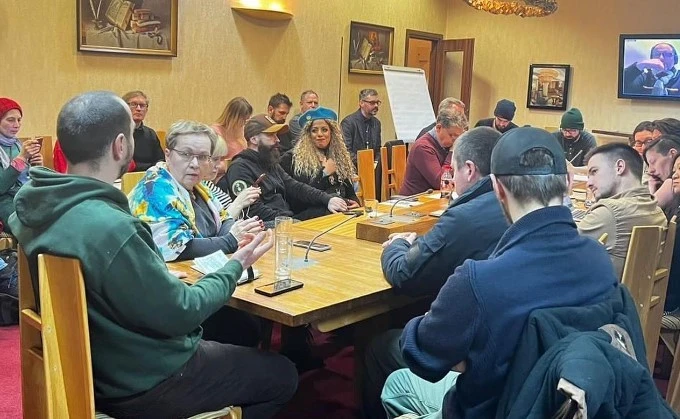
Photo: NGO Ukraine is Europe
You mentioned that there are fewer volunteers now. Why is this happening? What's causing this change in people's attitude towards war?
I don't think the attitude of ordinary French people has changed much. The French government still fully supports Ukraine. However, French volunteers who used to help don't seem as motivated anymore. We're planning a thanksgiving march in France with the Ukrainian community to appreciate the cities that helped Ukrainians the most.
This is a real problem because Ukraine doesn't officially recognize foreign volunteers. They're here, but Ukraine doesn't acknowledge their presence. This affects attitudes. Foreign volunteers engage in activities that encourage their social circles and communities to take action. Unfortunately, Ukraine isn't very active in this regard. We've asked the Cabinet of Ministers to create a structure to address foreign volunteer organization issues, like simplifying the visa process, but nothing has happened yet. This likely contributes to volunteers leaving because getting Ukrainian visas is very difficult. Statistics show that 80% of foreign volunteers who were here last year have left and not returned. Only 20% stayed. And 90% of the associations that used to help have stopped because they lack motivation.
Since 2014, Ukraine has had a complicated visa procedure. The principle is reciprocity, but it doesn't work the same way for volunteers. If I want to help here, I have to find a Ukrainian charitable foundation to invite me as a volunteer, even if I work through my own foundation. The procedure requires this document. Then, I have to travel from Ukraine to Poland, wait for a week to get a three-month visa, which costs about 150 euros. A month before it expires, I have to reapply, or I'll face fines. Instead of simplifying things for volunteers, there are already many obstacles in obtaining a visa. Some volunteers intentionally don't extend their visas because they see it as weeks spent on bureaucracy instead of saving lives.
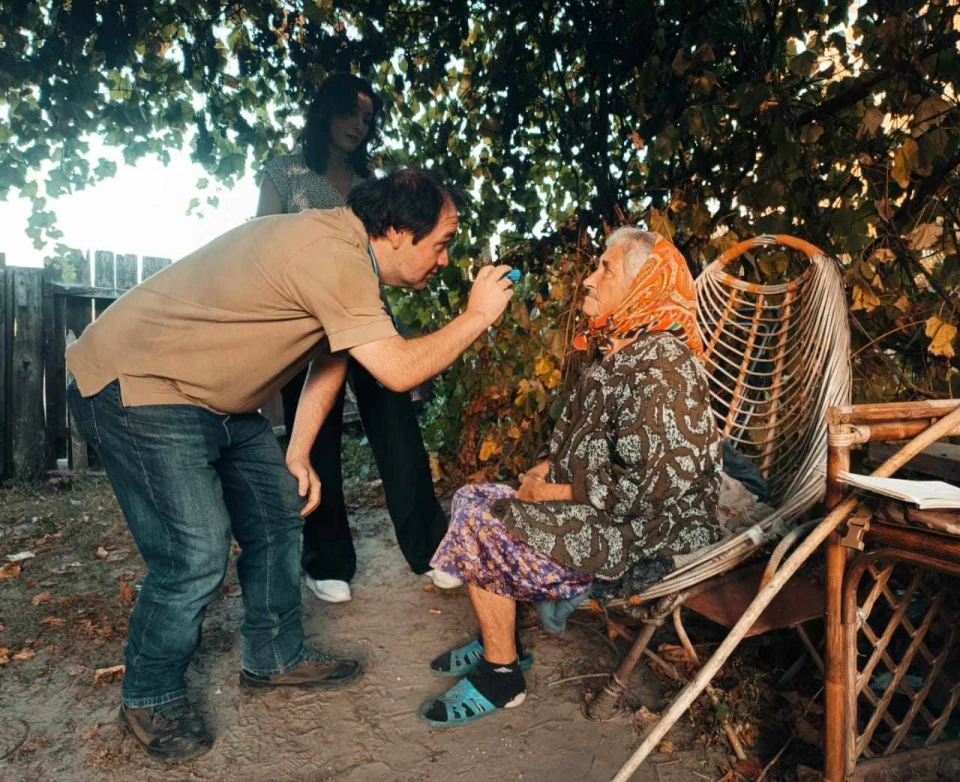
Photo: NGO Ukraine is Europe
Personally, I have a strong connection with Ukraine, and I love helping despite bureaucratic complications. But what about regular foreign volunteers who just want to help and could be granted longer visas? For example, my vice-president had trouble renewing his visa, even though he works with mobile hospitals in Donbas and the Kharkiv region. It took a lot of effort to get his visa. There's also the story of my driver, who crossed the border 157 times and delivers aid to the front lines twice a week. He was denied a visa twice, and the process took nearly two months. Instead of quick and grateful responses, these situations discourage people from helping.
There used to be a popular TV show called "Fort Boyard" where participants had to overcome challenges. This is somewhat similar to the experience of a foreign volunteer in Ukraine. Unfortunately, the government doesn't provide enough support or motivation. I remember President Volodymyr Zelenskyy expressing gratitude to volunteers, but that's not enough. People are getting tired, and the government should do more to support foreign volunteers.
What inspires your ongoing volunteer work in Ukraine?
First and foremost, it's the circumstances that drive me to continue. I realize that if I don't stay involved, there won't be anyone else to step in. Let me illustrate this with an example: Every day, I receive calls from the Rivne military hospital. The first time we visited, we found soldiers with amputated limbs sleeping on old, uncomfortable spring mattresses. On our next visit, we delivered 350 high-quality medical beds. I understand that these essential supplies won't come from elsewhere, as the state is facing shortages even in medicine. These soldiers are heroes and they need assistance.
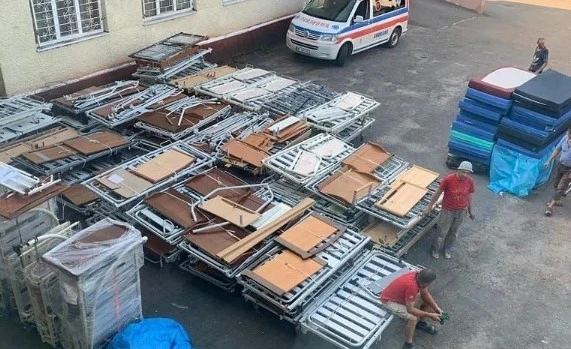
Photo: NGO Ukraine is Europe
Recently, I was feeling overwhelmed by my own challenges, but when I went to Rivne to provide the items the soldiers required, I was reminded of why we do this. We do it for people like one soldier who had undergone 19 surgeries since winter. We brought him bone glue that would enable him to walk again. He greeted us with tears in his eyes and heartfelt gratitude. It's moments like these that keep us motivated, as we witness the hardships people face and are compelled to offer help.
- News











































